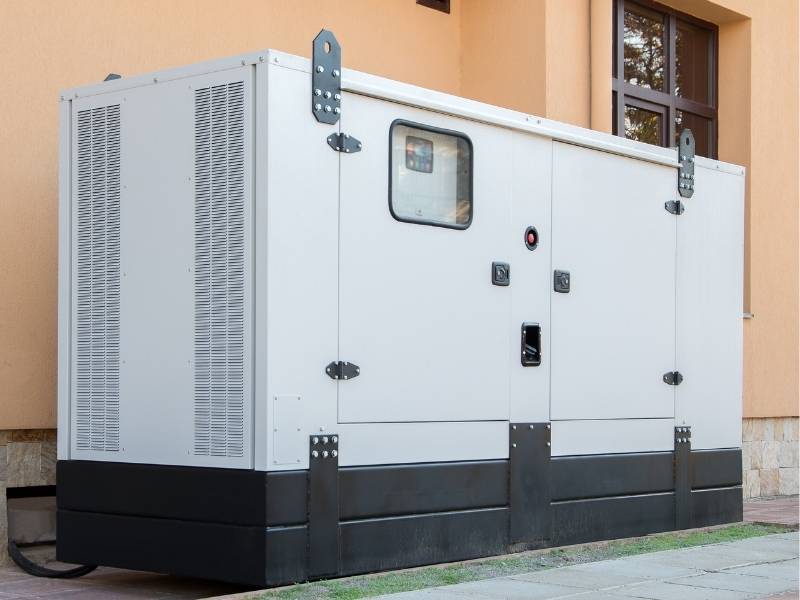Power for your home and/or business is indispensable for protecting your family, your clients and your property. Losing power in an emergency can be devastating. That’s why you must initiate a back-up power plan for your home or business.
Many different styles of back-up power are now available. Most people are familiar with options like a gas-powered generator, but modern back-up power supplies can also be as unobtrusive as an uninterruptible power supply in an electrical enclosure box. Many homes and businesses will need to combine multiple types of back-up power, which is why it’s a good idea to get familiar with all of the common options.
To that end, we invite you to continue reading to learn what you need to know about why you need a back-up power plan for your home or business.
Why Your Home or Business Needs Back-Up Power Plan

Everyone hopes they’ll never need a back-up power system. But what are the risks of going without one? To name a few:
- Perishable Goods: In almost every home and business, there are perishable goods that need a climate-controlled environment (often a refrigerator). Without power, some of these foods can spoil in as little as four hours. A family may lose a refrigerator full of food, and a restaurant could lose thousands of dollars in inventory.
- Emergency Communications: A power outage stops the most important emergency communications if you don’t have a back-up. Being unable to charge your cell phone or laptop make it much harder to contact help in an emergency. You also won’t be able to receive updates on weather events through radio or TV.
- Professional Communications: More people than ever are working from home, which means that reliable power is critical for maintaining productivity.
- Medical Devices: Medical providers must ensure that their patients’ critical medical devices have sufficient power. People who use medical devices at home also need assurance that their devices will remain operational during a power outage.
- HVAC: Regardless of the climate, your home or business requires heating and air conditioning to maintain livable conditions. Almost all modern HVAC systems require electricity to work. So losing power also means losing heat and air conditioning.
- Securing Valuables: Electricity is also essential for a building’s security. From electronic door locks to alarm systems, a power outage stops the most important security features. Extended time without power can render your home vulnerable to theft or other crime.
Generators vs. Uninterruptible Power Supplies
Generators and uninterruptible power supplies are the two major elements of most back-up power plans. They serve different functions and complement each other in important way. So it’s helpful to think of them in “both and” terms rather than “either/or.” Here’s the difference:
- A generator uses fuel like gasoline, natural gas or a 100W solar panel to produce electricity and provide a power supply for a home or business. Some produce a few hours of limited power, while others can power a whole building for days.
- An uninterruptible power supply uses a reserve power supply (usually battery-powered) to prevent interruptions in a power supply. Most are not intended for long-term use, although larger units may be able to provide a few days of power to select circuits.
Back-up power solutions are available in almost every size and capacity, and it’s relatively easy to find a combination that’s appropriate for your home or building. In the next sections, we’ll explore the most common options for both.
Source: Oil and Gas Photographer/Shutterstock
Types of Generators for a Back-Up Power Plan
These are the major types of generators you’ll find in use today:
- Portable Generator: A portable generator uses fuel like gasoline or diesel to generate electricity. Portable generators are the most popular option for homes and some small businesses, but they can create carbon monoxide risks and are quite loud.
- Solar Generator: Solar generators collect and store solar energy in a battery for use when power goes out. These generators are clean and cheap to run, but they take a long time to charge and are expensive to buy.
- Permanent/Standby Generator: Permanent generators, which typically use fuels like diesel or natural gas, are the back-up power of choice for large institutions like factories, hospitals, schools and office buildings. Generally, these generators must be installed on a foundation and regularly serviced by professionals.
- Inverter Generator: These generators are known for their extreme portability and clean, quiet operation. However, they can power only small devices and are only suitable as an emergency solution or for camping.
Types of Uninterruptible Power Supplies
The major categories of uninterruptible power supplies on the market include:
- Offline/Standby: The least expensive and most compact option, used mainly for personal and home applications.
- Online Double Conversion: The most expensive but most scalable option with the best power conditioning, widely used for enterprise computing and critical infrastructure applications.
- Line Interactive: A balance of features between offline and online UPS models. Line interactive uninterruptible power supplies are popular for small businesses and other institutions that need more power than a standby can provide, but don’t have the scale for a double conversion UPS.
Evaluating Your Back-Up Power Needs
The safest and most effective way to calculate your back-up power needs is to consult an electrician or electrical engineer. These professionals are trained to identify solutions for managing back-up power loads in a variety of settings.
Consulting a professional is especially important for businesses and institutions. Critical institutions like hospitals have specific requirements. Those requirements apply to how quickly their back-up power systems must activate and how much fuel they must store on-site.
Calculating back-up power requirements for homeowners is simpler. In fact, electrical manufacturers offer simple online calculators to estimate for your home’s needs. But it’s still good to work with a professional. For instance, they advise you on important details like what kind of circuit board enclosure your system may require.
Most large businesses and institutions will have one or more permanently installed generators.
In Conclusion
Investing in back-up power solutions now can prevent potentially huge losses later. The sooner you obtain a generator or UPS , the sooner you can sleep soundly. That’s because you know you are protecting your most important data and devices.
If you have any questions or suggestions, we always love to hear from you in the comments below. Also below are links that take you to more fantastic articles about ALL things DESIGN for your home or business.
Images Courtesy of Canva.
Other Posts You Might Enjoy:
How to Choose a Greenhouse Kit
Renovation Tips for a Growing Family
6 Homes Known for Their Unique Architecture
Designing Your Dining Table to be the Centerpiece of the Room





